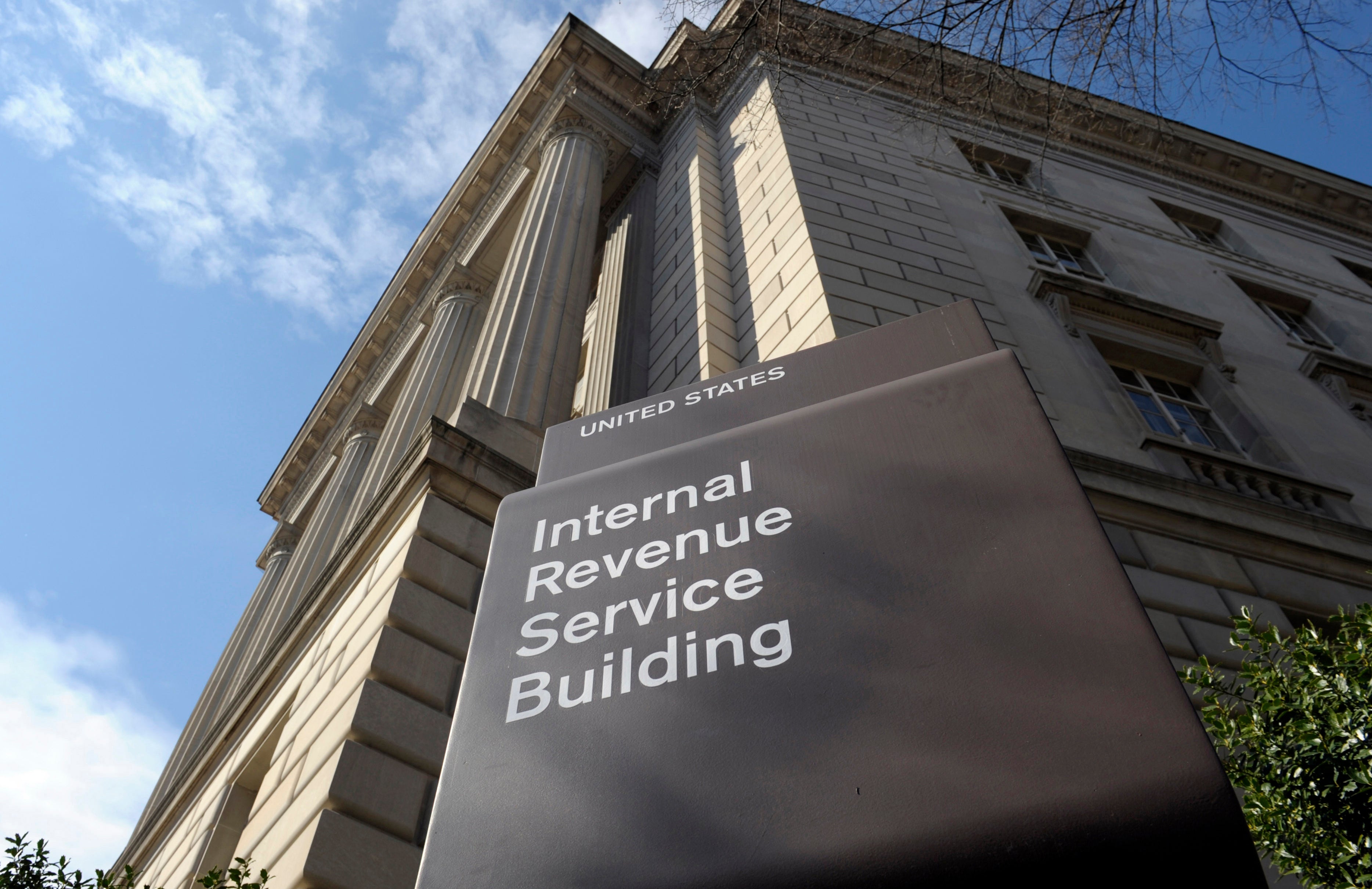IRS plans to hire 10,000 workers to relieve massive backlog
The IRS is announcing plans to hire 10,000 new workers to help reduce a massive backlog that the Biden administration says will make this tax season the most challenging in history

Your support helps us to tell the story
From reproductive rights to climate change to Big Tech, The Independent is on the ground when the story is developing. Whether it's investigating the financials of Elon Musk's pro-Trump PAC or producing our latest documentary, 'The A Word', which shines a light on the American women fighting for reproductive rights, we know how important it is to parse out the facts from the messaging.
At such a critical moment in US history, we need reporters on the ground. Your donation allows us to keep sending journalists to speak to both sides of the story.
The Independent is trusted by Americans across the entire political spectrum. And unlike many other quality news outlets, we choose not to lock Americans out of our reporting and analysis with paywalls. We believe quality journalism should be available to everyone, paid for by those who can afford it.
Your support makes all the difference.The IRS said Thursday it plans to hire 10,000 new workers to help reduce a massive backlog that the government says will make this tax season the most challenging in history.
The agency released a plan to work down the tens of millions of filings that includes speeding up the traditionally slow hiring process, relying more on automated processes and bringing on more contract workers to help with mailroom and paper processing.
Getting it done will be the big challenge, tax experts say.
The agency faces a backlog of around 20 million pieces of correspondence, which is more than 15 times as large as in a normal filing season, according to the agency. And the IRS workforce is the same size it was in 1970, though the U.S. population has grown exponentially and the U.S. tax code has become increasingly complicated.
Additionally, the need to administer pandemic-related programs has imposed an entirely new workload on the agency.
White House officials have said the agency is not equipped to serve taxpayers even in non-pandemic years. A senior administration official, speaking on condition of anonymity Thursday to preview the new IRS plan, said processing returns will continue to be a massive challenge so long as the agency operates on 1960s infrastructure.
The IRS' latest plan to combat the current backlog includes creating a 700-person surge team to process new returns, adding 2,000 contractors to respond to taxpayer questions about stimulus and child tax credit payments and developing new automated voice and chat bots to answer taxpayer questions.
There is no plan to extend the current April 18 filing deadline, the senior official said.
The new IRS plan comes as lawmakers have made persistent calls for additional federal funding for the agency.
Congress' mammoth $1.5 trillion omnibus package, released early Wednesday, would provide $14.3 billion to the Treasury Department, including $12.6 billion devoted to the IRS. That would be the largest funding increase for the tax agency since 2001.
However, Republicans have questioned the need for additional funding. Florida Sen. Rick Scott's “ 11 Point Plan to Rescue America,” unveiled in February, proposes a 50% cut in funding and workforce at the IRS.
The White House and Senate Minority Leader Mitch McConnell have roundly rejected Scott's idea.
Caroline Bruckner, a tax professor at the American University Kogod School of Business, said the agency is “at a competitive disadvantage" for finding new staff based on its reputation for employees being wholly overworked. She said she based this on her own survey of tax students she teaches.
Bruckner said, “It’s absurd we have put so much work on the IRS” without giving it the necessary resources to help Americans in the way that is expected.
Bruckner says along with increased funding, the IRS also "really has to change its narrative and the way it talks about its mission to one of service and being one of the most important anti-poverty systems that we have in the U.S.”